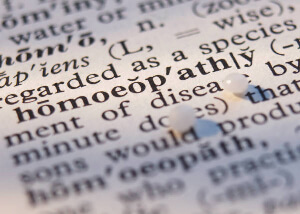What is it Does it Work

Homeopathy or homeopathic medicine was developed in Germany well over 200 years ago. It was developed by Samuel Hahnemann at the end of the 18th century and has been practiced in the US since the early 19th century. Homeopathy is also widely used in India, England, and many other European countries.
Homeopathy is an alternative medical philosophy based on the idea that the body has the ability to heal itself. It has many uses, including wellness, prevention, and the treatment of many diseases and illnesses. It is based on two principles: similars and dilutions.
Homeopathy – The Principle of Similars
The principle of similars or “like cures like” is one of the central principles of homeopathy. This principle believes that you can cure a disease can by a substance that produces similar symptoms in healthy people. In other words, you would take a homeopathic remedy that produces the same symptoms you have to enhance your body’s own self-regulatory system. The law of similarity seeks to stimulate the ability of the body to heal itself. Our bodies have an innate intelligence or wisdom. The symptoms that occur in the body is how the body chose to respond to a stressor or a situation. The symptom is how the body is compensating. Bringing the body back to balance by using a similar method is another way to understand it.
Homeopathy actually comes from the Greek word meaning similar (homo) and disease (pathos). The idea of similars originated with Hippocrates and was further developed by Samuel Hahnemann after he ingested cinchona bark, a popular treatment that was used for malaria. Samuel found that when he took the cinchona bark, he actually developed the symptoms of malaria. This discovery led to his theory that if a substance could cause symptoms of disease in a healthy person, small amounts could cure a sick person who had similar symptoms.
Homeopathy – The Principle of Dilutions
The principle of dilutions or “law of minimum dose” states that the lower the dose of the homeopathic remedy, the greater its effectiveness. The dilution of the substances is performed in a certain manner. Each substance is diluted many times and shaken vigorously in between the dilutions. In Homeopathy, this dilution process is known as “potentization”. Homeopaths believe that the solution’s energy and information are transmitted from the original substance to the final diluted remedy. Most of the homeopathic remedies are so diluted that no molecules of the original healing substance remain. The basis of the dilution and belief is that the final substance contains the “imprint” or “essence” of the original substance, which stimulates the body to heal itself.
Many critics of homeopathy believe that there is so little active substance left in a solution that any benefits from taking the solution are highly unlikely to have an effect. These critics feel that the benefit is more of a placebo effect. On the other hand, the supporters of homeopathy believe that although these solutions are highly diluted, they actually contain a “memory” of the original substance in water. The body recognizes this substance and reacts to it.
Homeopathic Remedies and Treatments

Homeopathic Remedies are designed and based on an individual’s genetic and personal health history, body type, and current physical, emotional, and mental symptoms. An initial visit can be lengthy because the homeopathic remedies are specific to each person. It is very common in homeopathy that individuals with the same problem or disease will often receive a different homeopathic remedy. Remember, homeopathic remedies are based on an individual’s symptoms, and symptoms often vary.
All homeopathic remedies are derived from natural substances. These substances come from plants, minerals, or animals. I know many of you have heard of some of the more common homeopathics like arnica and rhus tox.
According to the 2007 National Health Interview Survey, in 2006, approximately 3.9 million US adults and 900,000 children used homeopathy. Some of the following conditions use homeopathic remedies: allergies, arthritis, asthma, chronic fatigue syndrome, depression, dermatitis, digestive disorders, ear infections, headaches, irritable bowel syndrome, and skin rashes like poison ivy.
Homeopathic remedies are prepared according to the guidelines of the Homeopathic Pharmacopoeia of the United States (HPUS). They are regulated in the same manner as over-the-counter drugs. Most homeopathic remedies are considered to be safe and have been regulated in the United States since 1938. View more information on Homeopathy in the USA.
